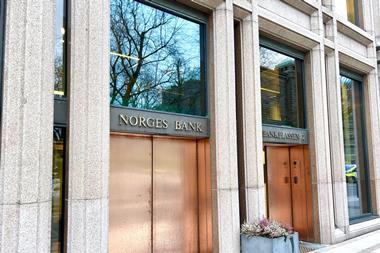ESG and net-zero targets are becoming an increasingly important focus for private debt managers as they seek to tackle climate change through their funding agreements, according to a survey carried out by IPE at the start of 2023.
Of the 38 global respondents, with a total of €341.3bn of private-debt assets under management, the vast majority (70%) said they include ESG terms and conditions (T&Cs) in their financing agreements, with 23% saying they did not, and 7% saying they were considering doing so.
Matthieu Boulanger, co-head of private credit at KKR, said: “Sustainability-linked loans provide a good incentive to borrowers to improve their ESG profiles. We have seen them be successful in the public markets and continue to see real potential for their application in private markets. Typically, these deals come with economic incentives such as a margin ratchet, but our goal is to be able to offer broader upsides, whether that’s a maturity extension or some covenant flexibility.
“One trap is that this becomes a tick-the-box exercise pitting one lender against another to deliver easier targets and avoid tackling material ESG issues. To prevent this from happening, we are trying to set meaningful targets, and so that we don’t mark our own homework. We are working with a third-party consultant to build a framework that aligns with industry best practices and allows us to determine where and how incentives can be most impactful.”
Another respondent said they actively engage with private equity sponsors and management teams to encourage ESG-positive behaviours.
The respondent said: “One way that we have found to be successful is to incorporate a modest pricing reduction if a borrower meets certain ESG/sustainability-linked provisions that are outlined within the loan agreement.”
While this makes for positive reading, it was concerning to learn that only 25% of those surveyed by IPE said they included net-zero targets in their financing contracts, with 32% saying they were considering such a move.
Worryingly, given the Paris Agreement net-zero targets for 2050, a large proportion of respondents (43%) said they were not even considering the inclusion of net-zero targets in their finance agreements.
However, Hayfin Capital Management said it has an ESG deal committee that has incorporated net-zero monitoring into its processes.
Caoimhe Bain, head of ESG at Hayfin, said: “Each private credit deal’s alignment to our net-zero framework is assessed, pre-investment. If the deal proceeds and is invested, we formally monitor net-zero alignment for direct lending holdings, as well as for our liquid credit investments.
“This is something we consider very important within our downside risk management.”
Respondents were also asked if they would consider asking existing borrowers to sign addendums relating to ESG and net zero. Almost half of those who replied (46%) said they were not contemplating such action, although 29% said they were and 25% said they were considering making such a move.
To read the digital edition of IPE’s latest magazine click here

















